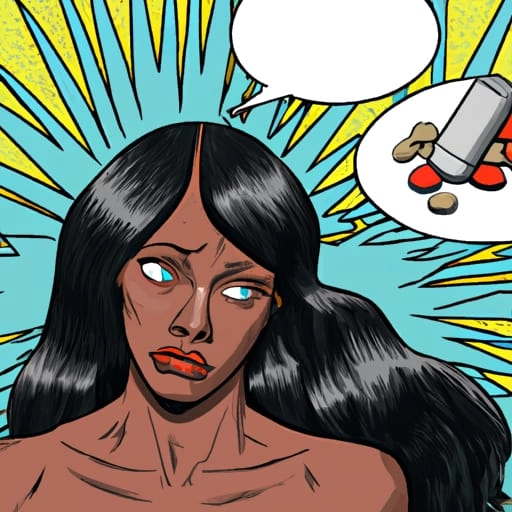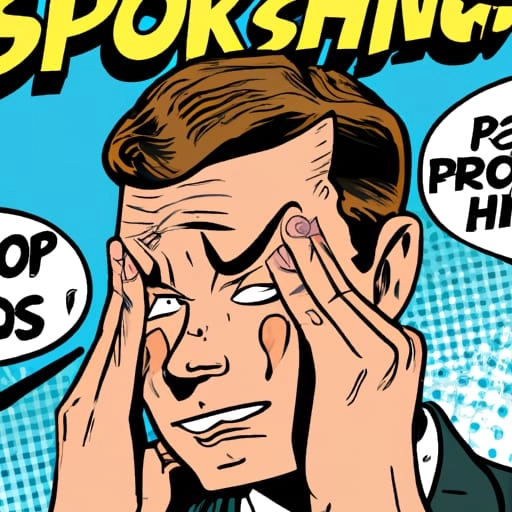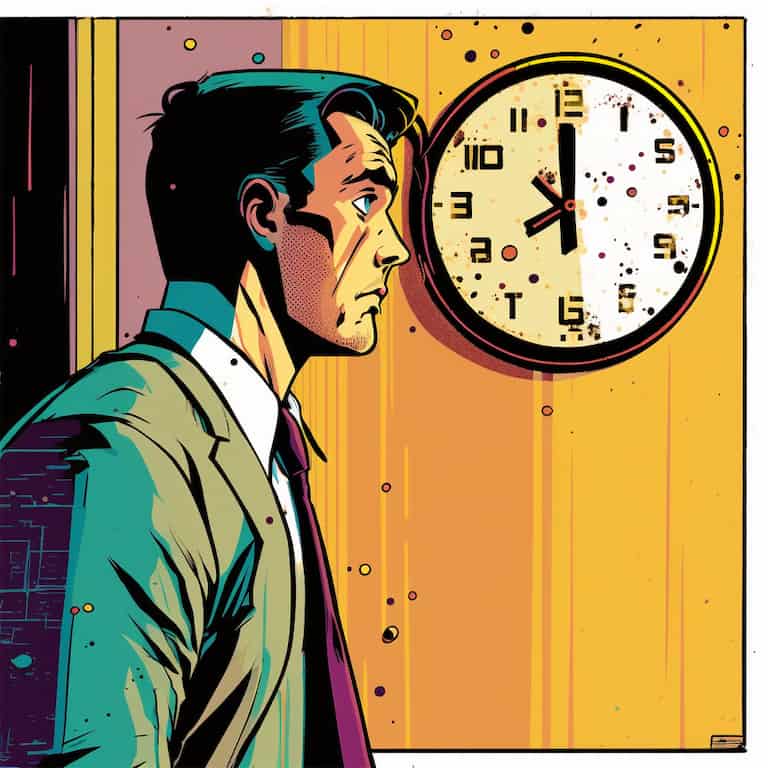
Can Klonopin Cause Depression? 7 Things To Know
There are no solid studies that show clonazepam (generic name: klonopin) causes depressive symptoms. In fact, benzodiazepines like this have been traditionally used to treat major depressive disorder in the past, though with mixed results.
So could it cause depression? A clue might be that Klonopin works like alcohol, and we know that about at 1 day, 7 days and 14 days after drinking alcohol, serotonin levels are much lower than normal, and we also believe that low serotonin is associated with depression.
It is possible that klonopin a similar effect, but there has been no good research on this.
So, it is inconclusive whether klonopin causes depression. However, there are other worrying thing you should know about it.
Read on.
What is Klonopin?
Klonopin is the trade name for the drug clonazepam. Clonazepam belongs to the benzodiazepine family and other members of that family may be known to you by their medical names or their trade names such as lorazepam (Ativan), diazepam (Valium), alprazolam (Xanax).
Legitimate Uses of Benzodiazepines
Benzodiazepine are prescription drugs that have a role in treating medical conditions, and benzodiazepine medication is used in mental illness treatment for anxiety and depression, all though this has become less. All benzodiazepines have four actions on the central nervous system (CNS):
- – Anti-anxiety (anxiolytic)
- – Preventing or stopping seizures (fits) and muscle spasms (Anticonvulsant)
- – Muscle Relaxant.
- – Sleepiness (hypnotic) — so they are good at treating insomnia.
Each type of benzodiazepine does all four, but in different amounts. For example, temazepam and nitrazepam do all four actions, but they are most powerful at making you sleep.
Benzodiazepines like opiates and alcohol are classed as central nervous system depressants. All of these CNS depressants seem to be associated with depression. Arguably, depression is the cause of suicide is most cases and so we can see a link between use of klonopin and suicide. But we need to dig deeper to get a clearer picture.
Midazolam also does all four actions, but is strongest as a muscle relaxant, so that if you dislocate your shoulder and the doctors need to put it back in, they will probably inject you with midazolam so you don’t mind and you are more relaxed.
When people have seizure disorders, health care staff will probably use diazepam or lorazepam, administered rectally for fast action to stop the seizure.
The main effects of klonopin are to reduce anxiety and promote
This all sounds great. It sounds like these drugs, including Klonopin are very helpful, and they are powerful and effective anti-anxiety medications. The reduce nervousness and do it far better than the selective serotonin reuptake inhibitors (SSRIs) your doctor prefers to prescribe you for anxiety.
Another use of clonazepam tablets is when apatient is extremely agitated, I have and continue to prescribe klonopin or ativan for sedation. It can be used as short term treatment of panic disorder. There is no doubting the effectiveness of klonopin in these situations.
Before we finish, looking at the legitimate uses of benzodiazepines, we should note that
another use for them is in alcohol detox. The fact that we use them to help someone who is killing themselves with alcohol abuse is an important clue as to why we consider klonopin (and the other drugs in this class) to be only useful for short-term treatment.
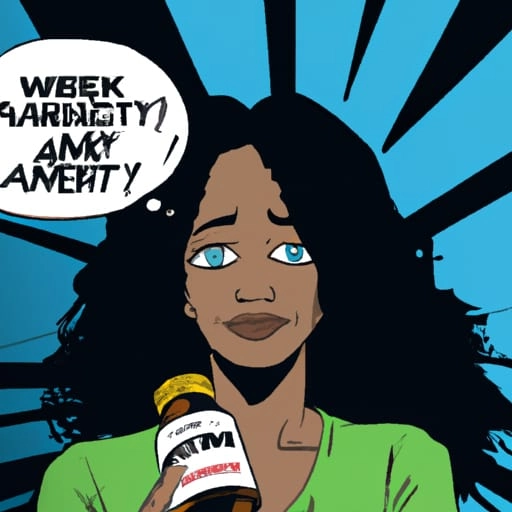
How Klonopin Works
Clonazepam (Klonopin) is a cns depressant, just like alcohol. First we need to talk about a neurotransmitter called GABA. GABA (gamma-aminobutyric acid) is the calm down chemical in our nervous system. The benzodiazepines bind to the BZ receptors in our brains acting like an additional supply of calm-down GABA, and so we relax.
All of the effects of clonazepam, the muscle relaxant, the way it reduces anxiety disorders and panic disorder and how it helps with seizures are all due to it working like GABA.
Alcohol also binds to these BZ receptors and that’s why we can use benzodiazepines as a substitute for alcohol in alcohol withdrawal.
But some of the problems of alcohol are shared by clonazepam.
The Problems of Regular Klonopin Use
Regularly flooding your nervous system with a drug that makes you forgetful, clumsy, unfocused, accident prone and sleepy doesn’t sound. It doesn’t sound like it would help your social life when people see you intoxicated or craving the drug.
No one thinks drinking a bottle of whisky a day can ever be good for you and we see that klonopin has a similar method of working in the brain.
But then there is a thing called anticholinergic burden. Clonazepam has an anticholinergic effect and when there are drug interactions with other things you are taking, either prescription medication or recreational that also have anticholinergic effects, then the burden increases.
We know that a high cholinergic burden creates a greatly increased risk of dementia, and will damage or impair your cognition, that is your thinking ability, before you formally get dementia.
Here’s a questionnaire that can work out your anticholinergic risk
Increasing Tolerance to Klonopin
Like with alcohol and opioid drugs, tolerance can develop. People can build up a tolerance to benzodiazepines over time, which means they may need to take more of the drug to get the same effects as before. This can happen when the body gets used to the drug and starts to deal with its effects in different ways.
There are several ways that benzodiazepine tolerance can happen. For example, the drug may cause the body to make less GABA or decrease the number of GABA receptors. Tolerance can also happen because the body may start to metabolise the drug more quickly, which means that it leaves the body faster.
The more you get used to taking klopin, the more tolerant to it you will become. This means you will need higher doses of the klonopin to get the same effect. But as well as this, if your body starts to produce less GABA, then you will there will be a physical dependence on the klonopin and when you don’t get the amount of klonopin you now need you will suffer the opposite of what klonopin gave you.
This means that instead of calm you will be incredibly anxious. Instead of having relaxed muscles, they will tremble and shake. Instead of sleeping deeply, you will have agitated insomnia. In short, it will be hell.
Klonopin withdrawal symptoms can be severe, including nausea, vomiting, irritability, dizziness, anxiety, and agitation.
This is known as addiction. You will need klonopin not to feel good, but just to stop feeling terrible every day.

Overdose of Klonopin
If you overdose you will have too much GABA. GABA balances out the alerting neurotransmitter Glutamate. You need glutamate to stay focused, alert and sharp-minded. If you have too much GABA from too much Klonopin, common side effects will be that you will be drowsy, confused, forgetful and clumsy. You will be more liable to fall and have accidents. In short, you will become intoxicated on the drug.
At high doses it relaxes the muscles you breath with relax too much, causing shallow breathing and then respiratory depression. These serious side effects are how people mainly die from benzodiazepine overdose.
If you have overdosed, seek medical help immediately. With immediate medical attention, you will almost certainly survive.
How Does Klonopin Cause Depression?
Up to now, we’ve talked about how klonopin use can raise your baseline anxiety so that you need some just to not to shake and panic. How does this cause depression though?
Firstly, being addicted to a drug and knowing you are, can make you feel worthless. This in itself can make you depressed.
Secondly, as part of how they work in the brain, as well as increasing the amount of GABA, benzos also release the feel-good neurotransmitter dopamine. Most drugs of addiction release dopamine, including cocaine, alcohol, and opioids.
Dopamine is a chemical messenger that affects mood, motivation, and movement. It is involved in the brain’s reward and pleasure centres.
Some studies have shown that benzodiazepines may stop dopamine from being released in some parts of the brain, while other studies have shown that they have no effect. We don’t fully understand how benzodiazepines may affect dopamine levels, and more research is needed to find out how these drugs interact with dopamine.
Another study showed that alcohol use reduces serotonin and noradrenalin, and it may be that benzodiazepines do this too.
It is very likely that these changes of neurotransmitters may be the cause of depression that people who use clonazepam for an extended period can experience.

Disinhibition and Aggression from Klonopin
These are features that occur in some people that take benzos. They are called paradoxical reactions. Those most at risk are people with a learning disability, a neurological disorder, a CNS degenerative disease, are young and immature, or who have a history of aggression and poor impulse control.
Again, comparing benzodiazepines to the similar acting alcohol, we see disinhibition and aggression as a feature of alcohol intoxication as well. We know that alcohol intoxication is associated with higher suicide risk, and so is benzodiazepine intoxication.
Dosage Guidelines
Clonazepam is prescribed for panic disorder at 1 mg a day initially for four days.
Clonazepam Use During Pregnancy
When taken in prescribed amounts, Klonopin has its uses and can be effective. Possible side effects can be depression, memory problems, and fatigue when taken in higher doses or for longer periods of time.
In addition to its use during pregnancy, caution is warranted when taking Klonopin as it may cause birth defects or other complications. Therefore, pregnant women must avoid using Klonopin or discontinuing suddenly without consulting their doctor. Patients who are on this medication must also talk to their doctor before abruptly stopping Klonopin as this could lead to withdrawal symptoms. Women of childbearing age should take extra precautions when taking Klonopin, as it may harm the unborn baby.
Even though it has been shown that benzodiazepines can get into breast milk, the amount that gets into breast milk is small and safe for breastfeeding.
Treatment for Clonazepam Misuse and Addiction
There is a real risk of dependence even to prescription medications like clonazepam when you take them for a long time. Though we think if medical professionals have prescribed it for us it can’t be drug abuse, you can still get a substance use disorder, no matter if the prescription is legitimate and for a genuine medical problem.
This class of drugs is no longer used for long-term treatment. If you become dependent on Klonopin, you may experience withdrawal symptoms. These will be such as agitation, increased heart rate, difficulty sleeping, irritability, nausea, and physical symptoms like sweating, goosebumps, as well as agitation, panic attacks, irritability, and depression after you stop using the medication.
Seek treatment from a qualified medical professional. Your health care provider can help determine the best course of treatment for you based on your symptoms and history of drug use.
Treatment options will very likely be switching you to an equivalent dose of diazepam (valium) because it has a longer half life and therefore the withdrawal isn’t as severe. They will then begin weaning you off slowly.
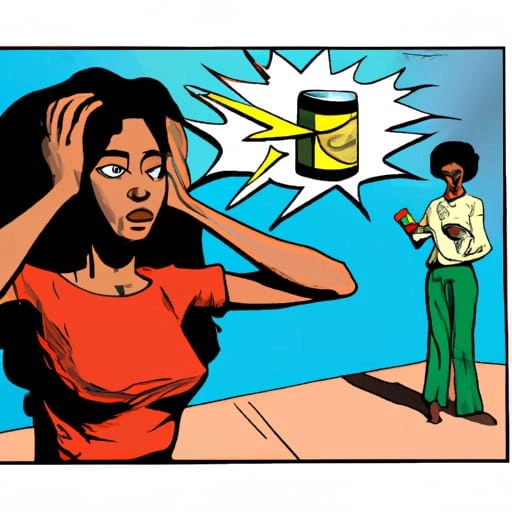
Conclusion: 7 Things To Know About Klonopin and Depression
- – Long-term use of Klonopin use decreases the brain’s natural production of the calm-down neurotransmitter GABA
- – The use of Klonopin may reduce the production of the feel-good neurotransmitter dopamine
- – Benzodiazepines (like alcohol), increase feelings of aggression and suicide is associated with aggression to oneself.
- – Benzodiazepines make you more disinhibited, so if you are feeling aggressive towards yourself and are disinhibited you are more likely to carry out any suicidal thoughts you might have.
- – This will be worse if you have a history of depression already or any other mental health disorder
- – If you become addicted to klonopin your feeling of self worth will go down and that leads to depression.
- – You can get help via the U.S. National benzodiazepine hotline at 1-800-336-4771, or in via UK-Rehab on 02038 115 619
In addition:
Be aware that klonopin will reduce your motor coordination and make it unsafe for you to drive or use machinery.
It is highly addictive and you will become tolerant and need more for the same effect or to stave off anxiety.
Long term use will increase your risk of falling, becoming forgetful and eventually getting dementia.
In both the United States and the UK, clonazepam it is a controlled substance under Schedule IV of the Misuse of Drugs Act.
If you have been using clonazepam, even for legitimate mental health conditions, you will be addicted to it. The first step is to speak to your healthcare provider for a treatment plan to help you come off it without suffering too badly from withdrawal.
Further Reading
Bristol CBD Oil Product Review

